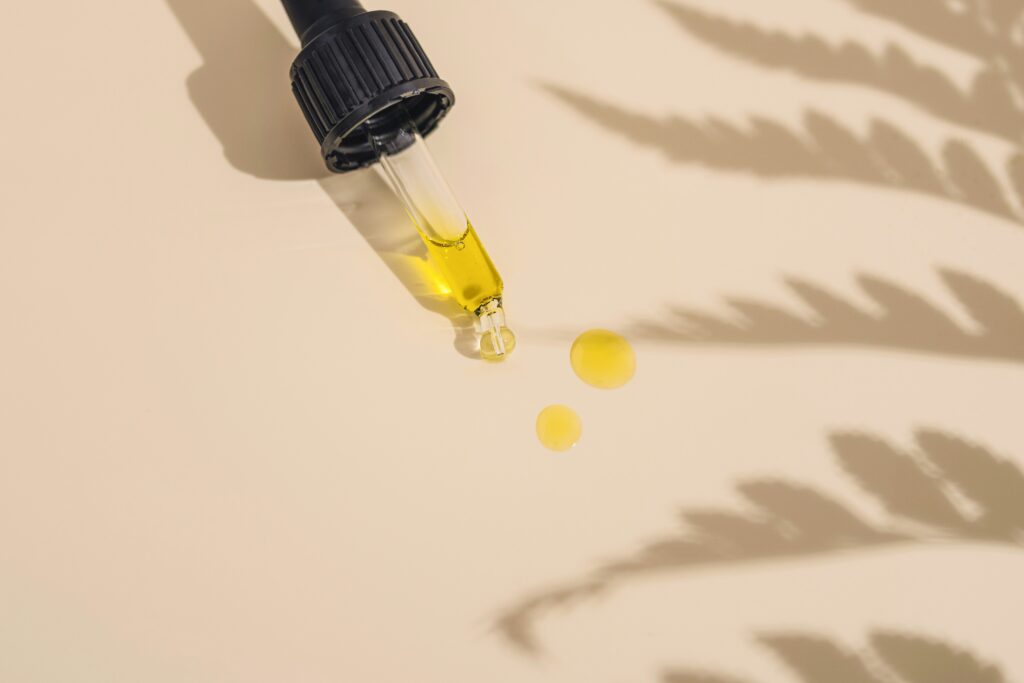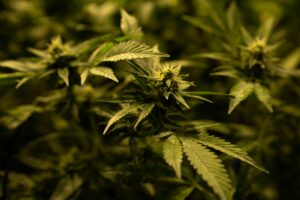
When shopping for CBD products, you’ll come across two main types: full-spectrum CBD and CBD isolate. These terms refer to the contents of the CBD product and how the cannabinoid is extracted from the hemp plant. Understanding the difference between these two forms of CBD is essential for choosing the right product for your needs. In this article, we’ll break down the key differences between full-spectrum CBD and CBD isolate, including their benefits, potential drawbacks, and which might be the best fit for you.
Table of Contents
ToggleWhat is Full-Spectrum CBD?
Full-spectrum CBD contains all the cannabinoids, terpenes, flavonoids, and other compounds found in the hemp plant, including trace amounts of THC (typically less than 0.3% in legal products). This type of CBD is often preferred by users seeking the “entourage effect,” which refers to the synergistic interaction between all the compounds working together to enhance the overall therapeutic effects.
Since full-spectrum CBD includes a variety of cannabinoids like CBG, CBC, and THC, it offers a more comprehensive approach to wellness, as these compounds have unique benefits on their own.
What is CBD Isolate?
CBD isolate, on the other hand, is pure CBD with no other cannabinoids or plant compounds. During the extraction process, all other components of the hemp plant are removed, leaving behind a 99% pure CBD powder. CBD isolate is typically free of THC, making it an appealing option for those who want to avoid any trace of THC or who may be sensitive to other cannabinoids.
CBD isolate is commonly used in products like tinctures, capsules, and edibles for individuals who want the benefits of CBD without any of the other compounds present in full-spectrum CBD.
The Entourage Effect: Full-Spectrum vs. Isolate
The “entourage effect” is a term used to describe how the various cannabinoids and terpenes found in full-spectrum CBD work together to create a more potent effect than CBD alone. The theory is that when all the cannabinoids and compounds in hemp are used together, they enhance each other’s therapeutic benefits.
For example, while CBD is known for its anti-inflammatory and calming effects, THC has pain-relieving properties, and terpenes like myrcene and linalool can enhance relaxation. When combined, these compounds can produce a more holistic and effective treatment.
Pros and Cons of Full-Spectrum CBD
Pros:
- The Entourage Effect: Full-spectrum CBD may provide enhanced therapeutic effects due to the interaction between cannabinoids and terpenes.
- Comprehensive Wellness: It offers a more holistic approach to health by utilizing all the beneficial compounds of the hemp plant.
- Less Processed: Full-spectrum CBD undergoes less refinement than CBD isolate, keeping more of the plant’s natural properties intact.
Cons:
- Contains Trace Amounts of THC: Although full-spectrum CBD contains less than 0.3% THC, it could show up on drug tests, making it less suitable for those subject to testing.
- Taste: The presence of terpenes and flavonoids may give full-spectrum CBD a more earthy or bitter taste, which some users may not prefer.
Pros and Cons of CBD Isolate
Pros:
- THC-Free: CBD isolate contains no THC, making it ideal for people who want to avoid THC entirely or who are concerned about drug testing.
- No Flavour: Since all plant compounds are removed, CBD isolate has no distinct taste, making it easier to incorporate into food and drinks.
- Pure CBD: It’s a good option for people who want to experience the benefits of CBD without the effects of other cannabinoids.
Cons:
- No Entourage Effect: CBD isolate doesn’t offer the entourage effect, meaning it may not be as effective for certain conditions as full-spectrum CBD.
- More Processed: CBD isolate undergoes additional refinement to remove all other cannabinoids, terpenes, and plant materials.
Which One is Right for You?
Choosing between full-spectrum CBD and CBD isolate depends on your individual needs and preferences. If you’re looking for a more comprehensive approach to wellness and don’t mind trace amounts of THC, full-spectrum CBD may be the best option for you. On the other hand, if you want to avoid THC entirely or are concerned about drug testing, CBD isolate is the way to g
How to Choose a High-Quality Product
Regardless of whether you choose full-spectrum CBD or CBD isolate, it’s important to select a high-quality product. Here are some tips:
- Third-Party Testing: Make sure the product is tested by an independent lab to verify its purity, potency, and safety.
- Check the Ingredients: Look for natural ingredients and avoid products with artificial additives or fillers.
- Source of Hemp: Choose CBD products made from organically grown hemp, preferably from Canada or the U.S., where farming practices are regulated.
Conclusion
Both full-spectrum CBD and CBD isolate have their advantages and disadvantages, and the right choice depends on your personal preferences and health goals. Full-spectrum CBD offers the benefits of the entourage effect, while CBD isolate provides a pure, THC-free option. Whichever you choose, make sure to buy from reputable brands that offer third-party lab testing and high-quality ingredients.












